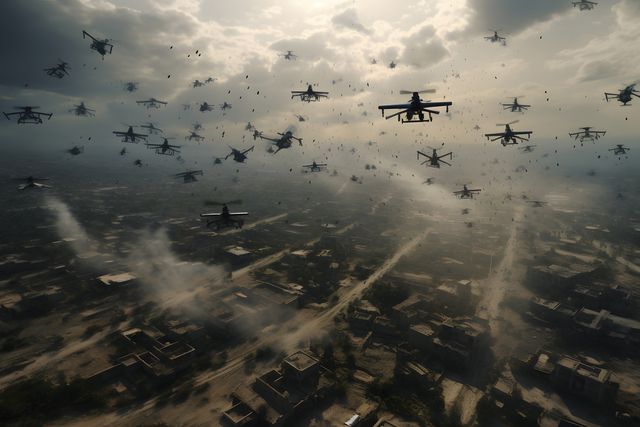Amid escalating tensions in the Middle East, Iran launches a retaliatory strike on Israel following a suspected Israeli attack on its consulate, sparking fears of wider conflict.
In a dramatic escalation of Middle Eastern tensions, Iran carried out an unprecedented attack on Israel, launching over 300 projectiles, including drones and ballistic missiles. This aggressive move came in response to a suspected Israeli airstrike earlier this month on Iran’s consulate in Damascus, Syria, which killed several Iranian officials.
The attack marks a severe deterioration in the already fraught relations between Iran and Israel, fueled further by Israel’s ongoing conflict with Hamas that began last October. The international community watches anxiously as the situation unfolds, with potential ramifications for regional stability.
How did the attack unfold? Iran’s offensive was extensive, involving a coordinated launch of around 170 drones and over 120 missiles aimed at various targets within Israel, including the strategically significant Nevatim airbase. Despite the scale of the attack, Israel’s advanced aerial defence systems successfully intercepted the majority of these projectiles, preventing significant damage and casualties.
This military action underscores the longstanding animosity between Israel and Iran, which has intensified following Israel’s declared war on Hamas. The conflict has seen various Iranian-backed forces in neighbouring regions staging attacks against Israeli and U.S. interests.
The recent airstrike on the Iranian consulate appears to have been a tipping point for Tehran, which promised retribution against Israel. This incident not only led to the loss of key Iranian military figures but also brought the covert hostilities between the two nations into the open.
Israel’s response to the Iranian strikes has been one of measured defiance. Israeli leaders commend the military’s defensive capabilities while receiving backing from Western allies who urge caution and diplomacy to avoid a full-scale war.
What might the future hold? The strategic decisions by Israel’s War Cabinet in the coming days will significantly influence the immediate future of this conflict. With hardline voices within the government calling for decisive action against Iran, the potential for further military engagement remains high.
On the international stage, reactions have been swift. The U.S. has reiterated its support for Israel’s right to defend itself while advising against actions that could lead to an escalation. Meanwhile, G7 nations have condemned the attack and called for an immediate cessation of hostilities.
As the situation continues to develop, the global community remains on high alert, concerned about the prospect of an uncontrollable escalation that could engulf the region in conflict.
